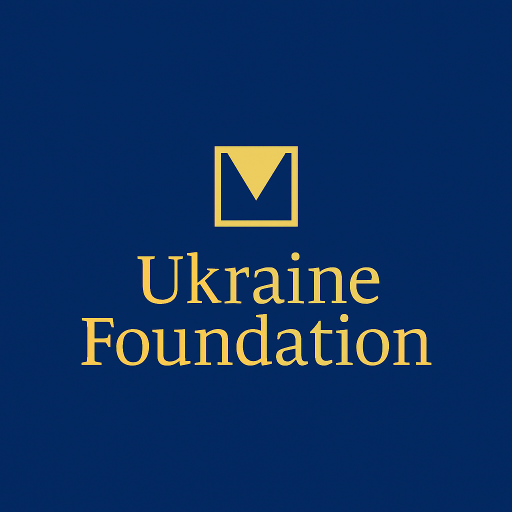Ukraine Foundation
Inspiring Change, Driving Impact
Oleksii Krolevets serves as Ukraine Foundation’s Senior Fellow for Technology and International Development.
Oleksii Krolevets is a seasoned business development and project management professional with over 15 years of international experience across government, diplomacy, and the private sector. He specializes in strategic advisory, government relations, and market expansion, bridging the worlds of policy and business to drive sustainable growth.
He is a Partner at United Heritage Fund, a Polish- Ukrainian Special Situation Asset Management firm with investment interests in Logistics, Agriculture, Real Estate, Energy, and Technologies.
Most recently, Oleksii Krolevets served as Senior Adviser and Deputy Country Director for the UK Department for Business and Trade at the British Embassies in Warsaw and Kyiv. In this role, he led strategic market intelligence efforts, advised British companies on entry and expansion in Ukraine and Poland, and managed B2G and G2G engagements to enhance bilateral trade and investment.
Prior to this, he was the Team Finland Coordinator at the Embassy of Finland in Ukraine, where he spearheaded Finnish business promotion, facilitated trade missions, and acted as the chief representative of Business Finland.
His earlier career includes leadership roles in international development projects and business operations. As Deputy Team Lead for the Swedish International Development Agency’s project supporting Ukraine’s Ministry of Finance, he played a key role in public finance reform. In the private sector, Oleksii Krolevets contributed to renewable energy projects with Centrotherm AG, managing construction efforts for Ukraine’s first solar park and a polysilicon production line.
He began his professional journey at the Ministry of Economic Development and Trade of Ukraine, where he led the unit coordinating international technical assistance and supported policy development across various sectors.
Oleksii Krolevets holds a Ph.D. in Public Management from the Ukrainian National Science Academy and a Master’s degree in International Economy. He has completed specialized training with institutions including the London School of Economics, Leiden University, KfW, and the European Commission.
He is fluent in English, Ukrainian, and Russian and has a working knowledge of Polish.
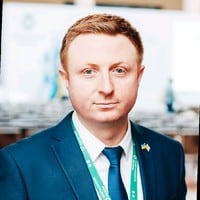
Berlin and Kyiv: On 24 July 2025, Ukraine Foundation and the Professional Government Association of Ukraine co-hosted an Expresso online session with Professor Theocharis N. Grigoriadis, our Distinguished Senior Fellow for Eastern European Affairs and Economics. The event, “Political Economy of Food Security: Evidence from Ukrainian & Russian Wheat Exports to Africa”published with the Kyiv School of Economics, Free University Berlin, and the European University of Viadrina.
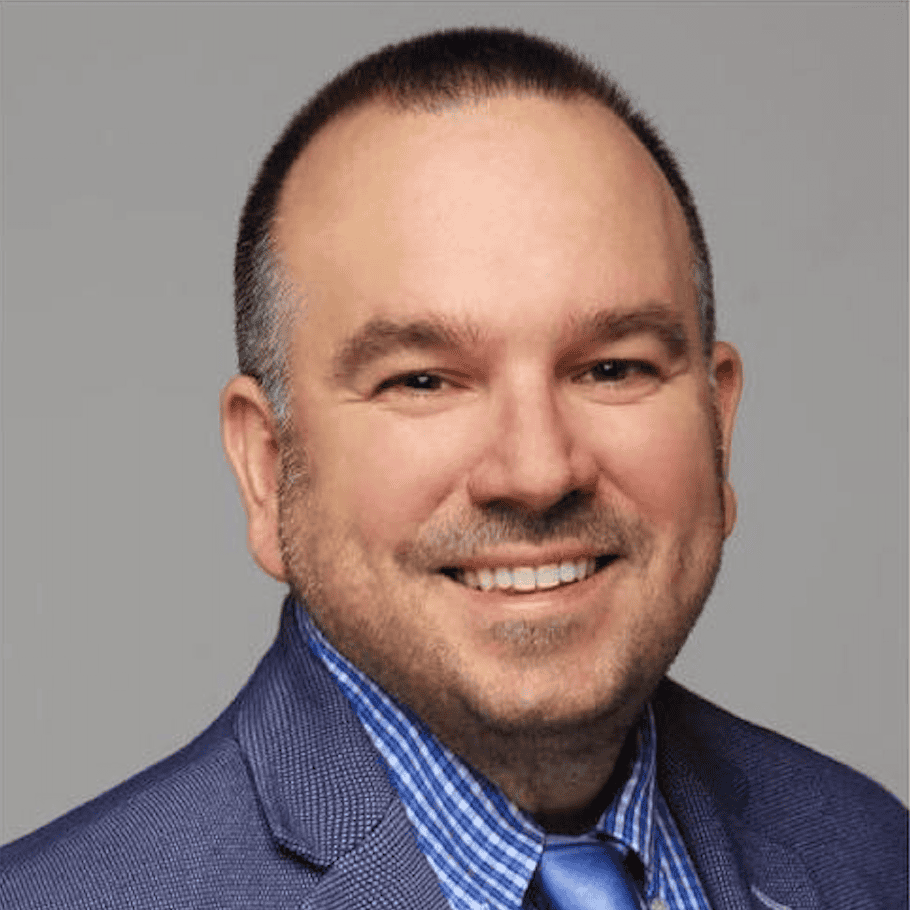
Presenting his groundbreaking study co-authored with Pavlo Martyshev, Oleg Nivievskyi, and Ivan Kolodiazhnyi under the auspices of the Kyiv School of Economics, Free University Berlin, and the European University of Viadrina, Professor Grigoriadis discussed new evidence on the dynamics of grain exports and their geopolitical implications. He highlighted how the full-scale war in Ukraine has disrupted global food supplies, with Africa—heavily dependent on Ukrainian and Russian wheat—emerging as a focal point in the weaponization of grain trade.
The presentation unpacked the political and economic strategies at play in the global wheat market and emphasized what Ukraine must do to restore competitiveness while countering Russia’s manipulation of food insecurity as a geopolitical tool. Participants engaged with Professor Grigoriadis in an interactive Q&A, exploring practical ways for policymakers, agribusiness leaders, and researchers to address vulnerabilities in food security.
This session pursued our joint Expresso series with the Professional Government Association of Ukraine and underscored our commitment to advancing rigorous, policy-relevant research that not only addresses Ukraine’s challenges but also contributes to solving critical global issues at the intersection of economics, security, and geopolitics.
About Pr. Theocharis Grigoriadis
Professor Theocharis N. Grigoriadis holds the W-2 Professor position with tenure at Freie Universität Berlin’s Department of Economics and Institute of East European Studies, where he has served since 2014.
A prolific researcher, Professor Grigoriadis has authored over 40 peer-reviewed articles in leading journals including the Journal of Economic History, European Economic Review, Journal of Conflict Resolution, and China Economic Review. His research spans diverse topics from the political economy of religious institutions to energy economics, climate change, and regional development. His book “Religion & Comparative Development: The Genesis of Democracy & Dictatorship” (Edward Elgar, 2018) exemplifies his innovative approach to understanding the deep historical roots of modern economic and political systems.
Currently, he is completing two major monographs: “Muscovy as New Byzantium: Imperial Political Economies & Orthodox Systems in Ivan IV. the Terrible” and “Spies & Revolutionaries: Imperial Russia’s Foreign Intelligence & the Defense of National Security,” which demonstrate his expertise in Russian imperial history and its contemporary relevance.
Professor Grigoriadis has secured over €1.5 million in competitive research funding from prestigious agencies including the German Research Foundation (DFG), German Academic Exchange Service (DAAD), and the European Commission. He serves as Program Director for multiple international partnerships, including the “Integrated Master of Science in Economic Systems” with the University of Belgrade and various German-foreign university collaborations spanning Russia, Ukraine, Georgia, Uzbekistan, and other Eastern European nations.
His extensive international network includes affiliations with the Hellenic Foundation for European & Foreign Policy, American University of Beirut, and research fellowships at Stanford’s Hoover Institution and Sabancı University’s Istanbul Policy Center. He has supervised over 150 completed theses at bachelor’s, master’s, and doctoral levels, mentoring the next generation of scholars in economics and area studies.
Beyond academia, Professor Grigoriadis contributes to policy through advisory roles with international organizations including the Open Society Foundations and UN Economic & Social Commission of Western Asia. His expertise in energy economics, climate policy, and post-conflict development has informed policy discussions from the Middle East to Central Asia.
Professor Grigoriadis holds multiple doctoral degrees from leading institutions: a PhD in Political Science from UC Berkeley (2012), a PhD in Economics from Saint Petersburg State University (2012), and is currently completing a PhD in Slavic Literatures and Cultures at Humboldt Universität zu Berlin. His educational foundation includes an MA in Russian and East European Studies from Yale University (2005) and an LLM from the University of Athens (2007). This interdisciplinary background uniquely positions him at the intersection of economics, political science, and cultural studies.
Fluent in eight languages including Greek, English, German, Russian, and Ukrainian, Professor Grigoriadis embodies the international perspective essential for understanding complex economic transitions and development patterns across cultures and political systems. His work bridges rigorous quantitative analysis with deep historical and cultural understanding, making him a leading voice in comparative economics and the study of institutional development in transition economies.
The discussion was moderated by Dr. Kostiantyn Lisnychyi.
Geneva and Kyiv: On June 12, the Professional Government Association of Ukraine and Ukraine Foundation successfully launched their joint Espresso Speaker Series with a presentation by William Dixon, who shared his latest research findings titled “Ukraine as the Cyber Spanish War.”
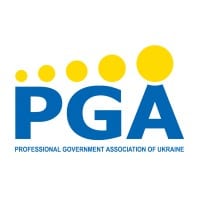
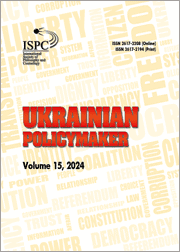
William Dixon serves as Ukraine Foundation’s Senior Fellow for Technology and Cybersecurity Affairs, and as a Senior Associate Fellow at the Royal United Services Institute (RUSI) -the world’s oldest defense and security think tank- where he specializes in cyber and international security issues.
He presented insights from his soon-to-be-published research in Ukrainian Policymaker, offering a compelling analysis of Ukraine’s role in the evolving global cyber landscape.
This was a timely conversation, as Ukraine’s advancements in cyber capabilities—including Unmanned Aerial Vehicles (UAV), Counter-Electronic Warfare (CEW), and Artificial Intelligence (AI)—coupled with strategic planning and strict operational security, have recently drawn the attention of global policymakers and defense strategists.
The discussion was moderated by Dr. Anna Mysyshyn, a global expert in AI ethics, cybersecurity, and digital governance, and founder of the Institute of Innovative Governance. Her thoughtful guidance sparked a lively exchange with our engaged audience.
About William Dixon
William Dixon began his career in the UK Intelligence Community, serving as an operational and strategic lead for various national security and cyber programs within Her Majesty’s Government Communications Headquarters (GCHQ). After leaving government service, he held the role of Head of Future Networks and Technology at the World Economic Forum. He also served as Global Head of Intelligence at Barclays. He is a published author and contributor to numerous publications and holds a Master’s degree in Intelligence and International Security from the War Studies Department at King’s College London.
About Dr. Anna Mysyshyn
Dr. Mysyshyn’s expertise has been sought by leading international institutions including the United Nations, UNDP, FCDO, U.S. Department of State, and the German Marshall Fund. She has played a pivotal role in shaping global regulatory frameworks and cybersecurity strategies. A recognized thought leader and policy advisor, Dr. Mysyshyn has lectured in over 20 countries. She holds a PhD in Law and three LL.M. degrees from prestigious Russell Group universities.
Looking Ahead
Our next Espresso Conversation will feature Dr. Mariya Heletiy, the Ukraine Foundation’s Non-Resident Senior Fellow for Peace Processes and Conflict Resolution, who will discuss: “Lessons Learned from the Balkans and Nagorno-Karabakh Conflicts for the Future of Ukraine.”
Check out William Dixon’s latest publications and media appearances
William Dixon in Today with Nic Roberston, BBC Radio 4, April 25, 2024 (starts at 17.19)

FAQs
What is the focus of Ukraine Foundation’s work?
Ukraine Foundation is an independent, mission-driven research and impact organization dedicated to advancing peace, resilience, and innovation in Ukraine. Our work combines rigorous policy research with practical initiatives that strengthen Ukraine’s international partnerships, support innovation and technology, and promote cultural resilience amid the ongoing war.
How does the Foundation turn research into impact?
We believe research should lead to real-world change. Our policy programs —Ukraine in Europe, China in Ukraine, and Ukraine in the Global South— produce insights that shape international dialogue and policy. At the same time, our impact initiatives foster cooperation between governments, businesses, academia, and civil society, ensuring that ideas translate into action for Ukraine’s security, prosperity, and influence.
How can individuals and organizations engage with the Foundation?
Engagement is central to our mission. Partners, experts, and supporters can collaborate through joint research projects, public events, and strategic initiatives in innovation and culture. We also welcome contributions to our programs that amplify Ukraine’s voice globally and strengthen its resilience at home.
How can I support Ukraine Foundation?
You can support our mission by contributing financially, partnering on research or impact projects, or amplifying our work through your professional networks. Every contribution -whether funding, expertise, or visibility- helps us strengthen Ukraine’s resilience and global partnerships.
Does Ukraine Foundation accept volunteers or research fellows?
Yes. We welcome dedicated professionals, researchers, and students who want to contribute to our policy and impact agenda. Opportunities range from short-term projects and fellowships to longer-term engagement with our programs and initiatives.
How can organizations collaborate with the Foundation?
We actively partner with think tanks, universities, governments, businesses, and NGOs to co-develop research, host events, and implement projects that drive meaningful change. Organizations interested in collaboration can reach out to us directly to explore tailored partnerships.
